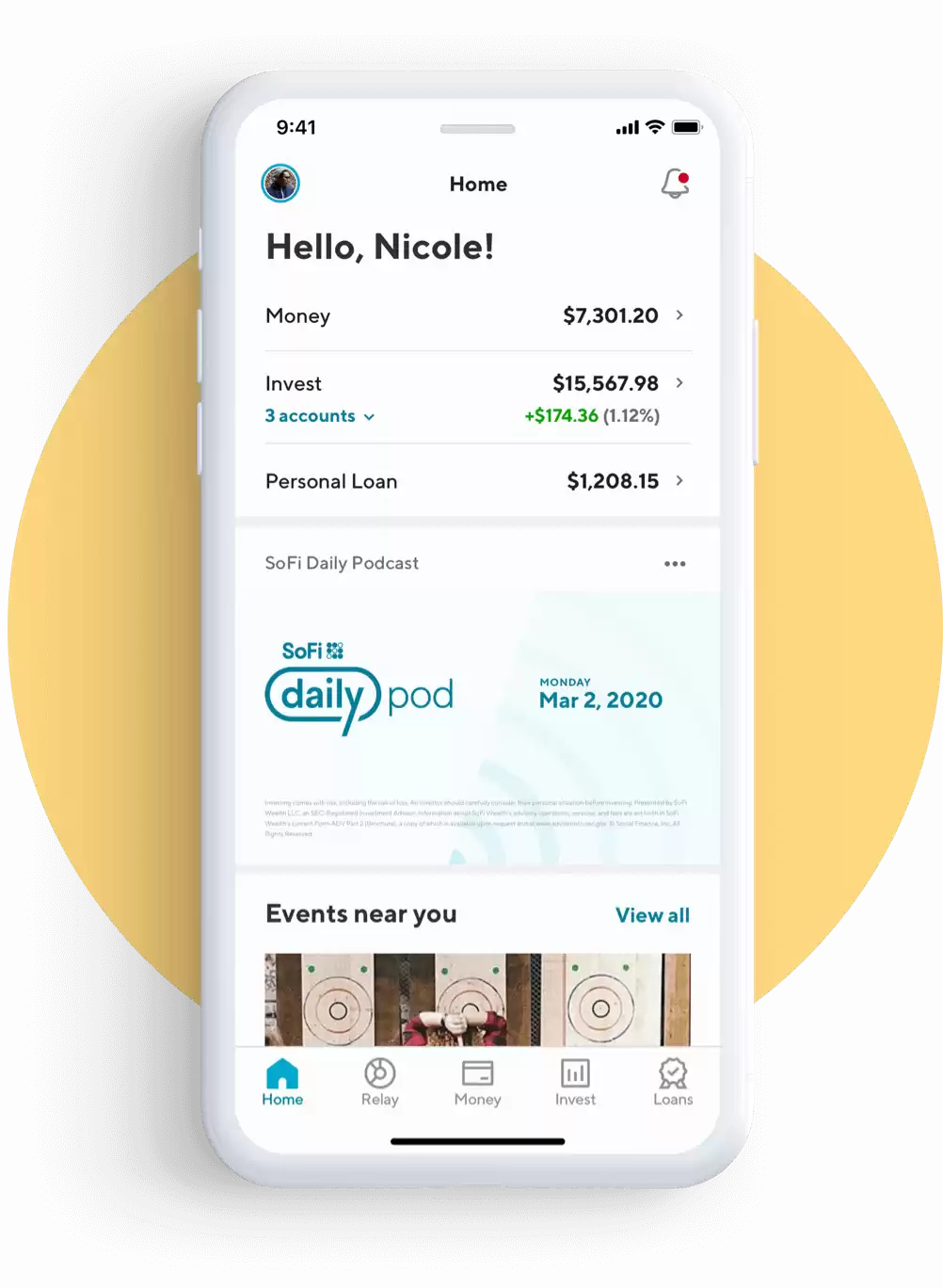Family financial planning can assist you in developing a full plan for money management throughout numerous life stages.
It starts with the fundamentals, such as creating a budget, paying down debt, and saving money. However, a family financial plan might also include things like investing for retirement and college savings.
Creating a long-term financial strategy for your family is something you can do yourself, and it not might always require the assistance of a financial advisor.
That is if you're given the right steps to create a plan. As a personal finance expert, here are my best tips on how to accomplish family financial planning.
What Is Family Financial Planning?
In a nutshell, financial planning entails laying out particular objectives for your money and the actions you will need to take to achieve them. As you know, financial planners are professionals that assist individuals in creating a financial plan and then implementing it.
Financial planning for families is all of the above, with an emphasis on looking at your family's entire financial picture and setting a plan of action to meet short-term and long-term goals.
This form of financial planning takes into account the many ways marriage or parenthood may impact your finances.
Next, learn how you can create a family financial plan through actionable steps.
How to Create a Family Financial Plan
If you're looking for a way to make sense of your money, there are certain aspects to consider. Here are some of the most crucial areas to cover while creating a family financial plan.
Budgeting and Spending
A budget is the foundation of any family financial plan. There are now debit cards for kids and teens. It's a lot to manage so it's time to create a family budget if you don't already have one. You may quickly set up a budget using online budgeting tools.
Tracking your spending on a regular basis can help you fine-tune your budget and avoid overpaying. Automated budgeting apps like Empower exist to track your expenses for you.
If you're diligent with your budgeting, keep a mental note of expenses and income for the month. When you look at your budget at the end of each month, see if any changes are needed. Reducing one category's spending might free up money that you can apply to one of your financial objectives.
It's also useful to conduct a yearly budget review to see how your expenditures have changed over time. You may use this as a benchmark for planning your next year's budget.
Take control of your finances with Empower's free personal finance tools. Get access to wealth management services and free financial management tools.
Debt Repayment
Those debts, such as credit card debt, student loan debt, or a mortgage, must be included in your family's financial plan if you have any. A strategy and a timetable for paying off those obligations are also necessary.
When you have a lot of debts, it might be useful to rank them in order of importance. If your high-interest credit card debt is costing you the most interest while your low-interest mortgage is worth waiting for, for example, you may want to put it at the top of the list.
Consider what you can do to speed up the payback of your debt if it's included in your family's financial plan. Refinancing student loans through SoFi or a mortgage to a lower rate, for example, might allow you to make a greater impact on what you owe if more of your payments go towards the principal each month.
SoFi is an online lender that helps you with your student loans. If you want to change your current student loan to get better perks, SoFi's refinancing option is a great choice. If you need a new student loan, SoFi is also good because it lets you choose how you pay it back and doesn't charge extra fees.
Financial Goals
A financial plan for your loved ones entails considering what objectives you want to accomplish with your funds. They might include:
- For retirement, I plan to save $1 million.
- I want to pay off the mortgage before I turn 50
- I want $100k in college savings for my children
These are examples of long-term financial goals you might have. You may also have short- or mid-term objectives in mind, such as saving $10,000 in your emergency fund or putting aside $5,000 for a trip you want to take in a few years.
Set financial objectives as a family in moderation. Keep your objectives realistic and precise, and provide deadlines for each one.
Retirement Planning
It's never too early to consider retirement, especially if you don't want to be a financial burden on your children later. Begin by evaluating the assets you and your spouse or partner currently have access to.
If you both work, for example, you may be able to make contributions to a 401(k) or similar plan at your place of business. If your firm offers a corporate match, making yearly or monthly maxed-out contributions could be an important element of your family financial strategy.
Other options for retirement investing include a traditional or Roth IRA. Of course, you should also be considering where Social Security payments will fit into your financial plan once you're ready to retire.
Related: What is the Best Retirement Plan for Young Adults?
College Planning
It's not cheap to raise children, especially when you consider the price of college. Even if your children are still young, it's a good idea to start thinking about setting college savings goals and what you can do to gain an edge.
529 college savings accounts and Coverdell education savings accounts are two ways to save for college on a tax-advantaged basis that are worth noting. Even if you start late, these may be useful.
College planning discussions should also include topics like scholarships, grants, financial assistance, and student loans. It's also beneficial to discuss cost of schooling and what your expectations are regarding them contributing to their education expenses while they're still in high school.
Insurance Planning
When arranging a family financial plan, don't overlook insurance. While you may already insure your home and cars, life insurance is also crucial to consider. One company you can check out is Ladder which offers really low rates and great benefits and coverage.
Consider purchasing life insurance in case something happens to you or your spouse. Life insurance can provide peace of mind and a financial safety net if the worst happens. Even if one of you does not work, get life insurance for each of you.
If the worst should happen, having life insurance on hand might offer comfort and a financial safety net. You can get a free quote in less than 2 minutes with Ladder.
🛡️ Guarantee Financial Stability for Your Loved Ones: Offer them the serenity of knowing they are financially secure, no matter what life throws their way.
🌟 Safeguard Their Well-being Beyond Your Lifetime: Rest easy with the assurance that your family will continue to thrive, even in your absence.
👉 Click here for a NO-COST consultation and unlock cost-effective solutions specifically crafted for your needs.
Don’t wait for the unexpected - act now and embrace peace of mind today!
Estate Planning
Having a young family does not relieve you of the obligation to plan for your future. It's critical to have a last will and testament in place, at the very least. You may use a will to determine who should inherit your assets and name a guardian for minor children using one.
If you have a high net worth, it can be beneficial to set up an anonymous trust. You should also consider if you and your spouse should each have an advance healthcare directive and power of attorney in place in the event of an emergency health issue.
Related: 5 Things You Didn’t Know About Estate Planning
Should You Use a Financial Advisor for Family Financial Planning?
While you may create your own family financial plan, hiring a professional can help you save time and money.
A financial planner or advisor, for example, may provide insight and knowledge about issues like investing or retirement planning that you lack. They can also take a broad perspective of your financial situation to identify any planning blindspots you may have.
If you choose to hire a financial adviser, be sure to find out if they are fee-based or fee-only. Fee-based advisors may get commissions if they sell you particular products like annuities, whereas fee-only advisors charge for their services alone.
What's Next?
When you're managing money for yourself, family financial planning isn't a priority. However, it's something you should think about when handling funds for more than just yourself.
Long-term planning and thinking ahead can help you achieve your financial objectives.
Whether you want to create your own financial plan or hire an expert, now is the perfect time to begin.
How Chelsea Manages Her Families Money
Chelsea is a wife and loving mother of a one-year-old. She is also the creator and author of Mama Fish Saves, a personal finance blog aimed at helping young families attain financial independence.
With professional experience in corporate finance for the past seven years she actively manages a portfolio at a major hedge fund. There is no doubting her experience with finance however in her free time she enjoys hiking, quilting, and curling up with a good book. She also spends time helping her friends and loved ones achieve financial success. Though geared towards young families, Chelsea's blog, Mama Fish Saves, has valuable insight geared towards a wide audience.
I wanted to learn more about how Chelsea plans on achieving financial independence as a parent. All of us have a story to tell about personal finance, and I created the Meet Millennials series so that anyone can share their unique story with money. Talking about money has been considered taboo in the past but we are here to change that.
Here is the interview I had with Chelsea:
How would you describe your current financial situation?
Solid, but in transition. We are doing well with our savings goals and my husband and I manage our budget well together. However, because of my investing restrictions through work almost all our savings have been going into diversified mutual funds. Now I am more focused on finding creative passive income sources and investing strategies to improve our returns and move us closer to achieving FIRE. I am speaking to a local business who is looking for an investor, dipping into P2P lending and investing, and started Mama Fish Saves.
Do you consider yourself to be money-savvy?
Definitely. I work investing at a hedge fund, started my career at an investment bank, and allocate quite a bit of time to learning about personal finance and managing my family’s financial situation. We keep short, medium, and long-term goals and discuss them on a regular basis. My one year old doesn’t have much to add yet, but he can put coins in his piggy bank so he’s off to a great start!
What financial advice would you have wished to hear when you started working?
If you are going to be working a lot early in your career (a) make sure you have roommates and (b) find roommates who are living stingy or make less money than you. I spent my first year out of school without roommates because I thought I would want the alone time after long days at the office, but the truth was I was almost never there and spent way more money on rent than I needed to. After that I moved into an apartment with 2 people, which cut my rent by over 50% and one of those roommates later became my husband so it worked out well!
On the spending habits of your roommates and controlling spending – I had a really good friend who lived with her buddy from college who had gone into journalism and it forced them to find a lower cost apartment and limited their social expenses when they wanted to go out to dinner or drinks. She saved over 50% of her income those first few years working compared to other friends of ours who lived with other banking analysts and saw a lot of lifestyle creep and didn’t save as much as they could have.
What financial achievement are you most proud of?
When we were looking at buying a house we found out my in-laws still had loans outstanding for my husband’s college. For Christmas that year we were able to pay the loans off in full and that was a really great feeling. To be able to afford a mortgage down payment and pay off those loans in one year without dipping into our retirement savings was a pretty awesome thing.
What expense can you not live without?
A high-speed internet connection. Not only do I love reading the news, personal finance blogs and keeping up with friends, but a strong internet connection lets me come home at a reasonable hour during the week to spend time with my son before he goes to bed, then jump back into work for a few hours.
What expenses could you cut down on?
Groceries. Absolutely my husband and my kryptonite when it comes to budgeting, we always spend more than we intend to. We eat at home almost every meal because I have food allergies, and once or twice a week we forget to take meat out of the freezer in time and end up making extra runs to the grocery store which add up quickly. We are working on a better system to reduce our expenses and food waste.
What are your long-term financial goals?
My long term financial goal is to develop enough savings and passive income sources to achieve FIRE. I would love to be able to leave my desk job and have more time at home with my family. This is a little more complicated for me since my job significantly limits what investing I am allowed to do for compliance purposes, but we are making progress.
What are your short-term financial goals?
This year my goals are to:
1. Develop two sources of passive income. I am talking to a local business that needs an investor in the next couple weeks and looking for other investment opportunities.
2. Save +50% of pre-tax income. Last year we saved ~34% of pre-tax income and ~52% of post-tax. This year we are taking less trips and are working on cutting some expenses to get to +50%.
3. Allocate some money to P2P lending and investing platforms. I think there are some great P2P sources out there now, but I haven’t spent enough time digging into them to be comfortable allocating much money to them. This year I plan to dive in more.
Do you have any side hustles or ways to gain supplemental income?
Besides a very small amount of selling baby quilts to friends and colleagues who want them to give as gifts, not yet. 2021 will be the year of laying the foundation and I hope to have some by year end!
How do you manage paying off student loans and/or consumer debt? Any tips?
I was incredibly lucky and my parents were able to pay for my college. I got out of undergrad in three years to reduce the cost which helped as well. Our only debt today is our home mortgage and because our rate is low we aren’t paying it down as aggressively as we could. Every year we allocate some of the budget surplus/savings to the house and the rest to investing and retirement.
My biggest tip is to not get lulled into a sense that debt is normal. Know how much you are paying in interest cost every month or year and acknowledge that that is money you are just burning. Use that figure to stay motivated to keep a tight handle on your budget and pay down debt.
What career path would you choose if money was not an issue?
I would love to teach or start a non-profit offering financial education for youth.
One of the main reasons I started Mama Fish Saves was frustration over the financial education gap – if your parents don’t know how to manage their money and you weren’t taught in school, how are you supposed to get out of the debt and paycheck to paycheck cycle? I wanted to offer easy to understand guides to budgeting, investing, and debt management.
Closing thoughts
“It does not matter how slowly you go as long as you do not stop.” – Confucius
Gaining financial security and sanity isn’t a sprint. Every extra dollar you can put towards debt reduction or retirement savings will make a difference and if you have a bad week or bad month, learn from it and just keep moving. We all have bad habits we have to unlearn, new best practices we could incorporate into our lives, and expenses we could learn to cut. Decide each day to do a little better than the day before and success with come to you.










